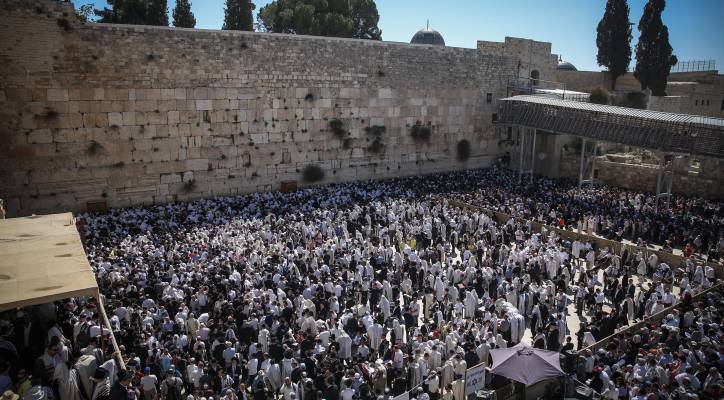Israel slammed what it called a “hypocritical” UNESCO resolution that expresses “deep concern” over Israeli activity in and around the Old City of Jerusalem and the Temple Mount.
Israel is criticizing a looming decision on Jerusalem by the United Nations Educational, Scientific and Cultural Organization (UNESCO), saying it ignores Jewish and Christian ties to the biblical city.
Several Arab states submitted a draft resolution to UNESCO that condemns Israel for archaeological digs in Jerusalem’s Old City and for building a light rail line nearby that it says caused damage and ruined its “visual integrity.”
A UNESCO official says a resolution is due to be adopted Wednesday.
Jerusalem’s Old City and its walls were first submitted to UNESCO’s list of endangered world heritage sites by Jordan in 1982. Since then, UNESCO’s World Heritage Committee periodically reviews the sites on the list.
At its recent annual session in Bonn, Germany, the World Heritage Committee reaffirmed a resolution submitted by Algeria, Lebanon, and Qatar that expressed “deep concern at the persistence of the illegal excavations and works conducted by the Israeli occupation authorities and the extreme settler groups in the Old City of Jerusalem and on both sides of its Walls.”
Israel’s Foreign Ministry Director-General Dore Gold blasted the UNESCO resolution, noting that it only refers to the Temple Mount as a “Muslim holy site” and “deliberately ignores the historical connection between the Jewish people and their ancient capital” as well as Christianity’s connection to Jerusalem.
“As the historical heritage sites of this area are being systematically destroyed by jihadist forces, such as the Islamic State in Syria and Iraq, UNESCO’s adoption of utterly false allegations about Israeli archaeological practices is misplaced and hypocritical, at best,” Gold said. “The resolution is full of distortions and is totally disconnected from reality on the ground.”
Israel captured the area from Jordan in the 1967 war and protects all holy sites for all religions.
By: JNS.org and AP.
